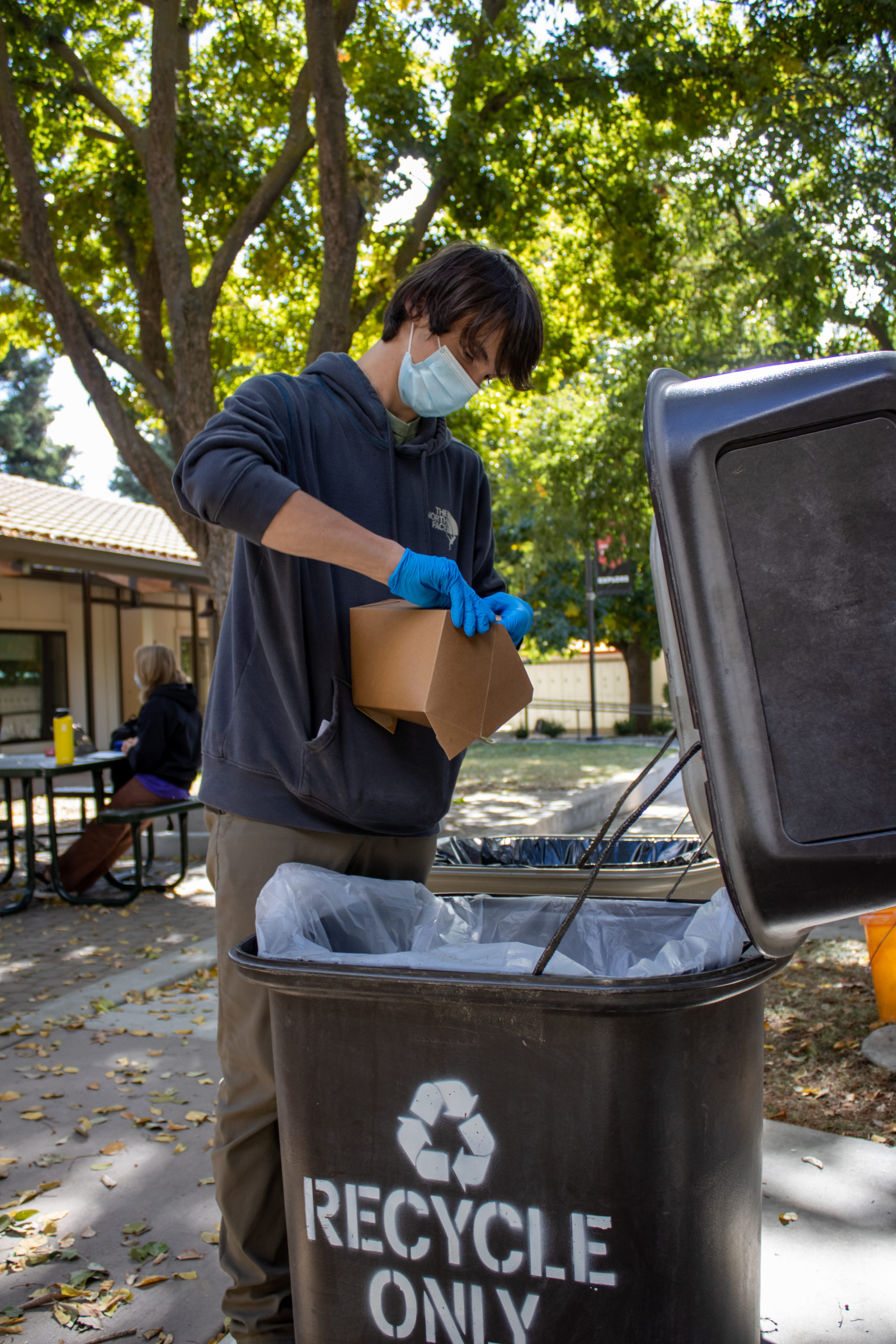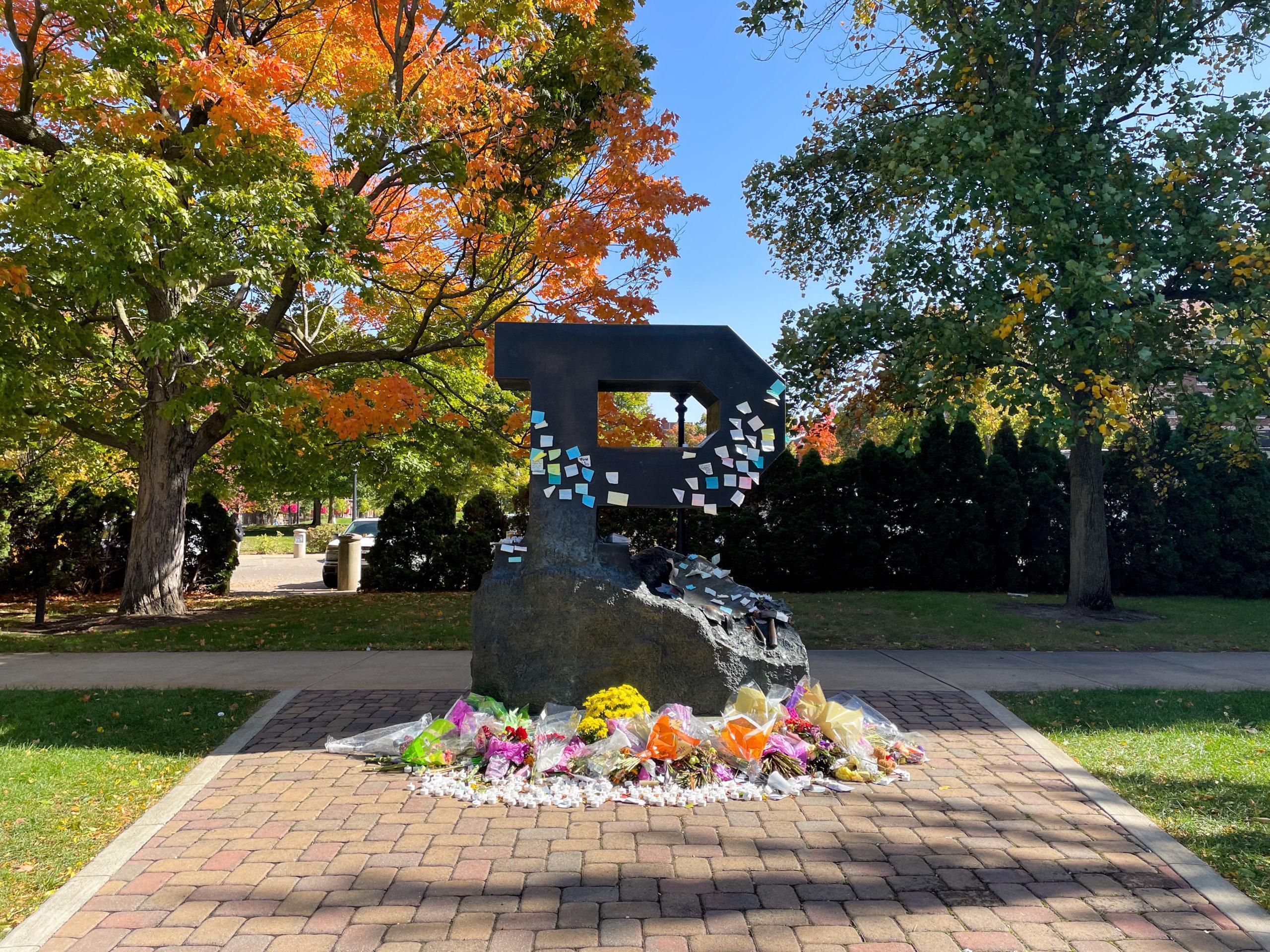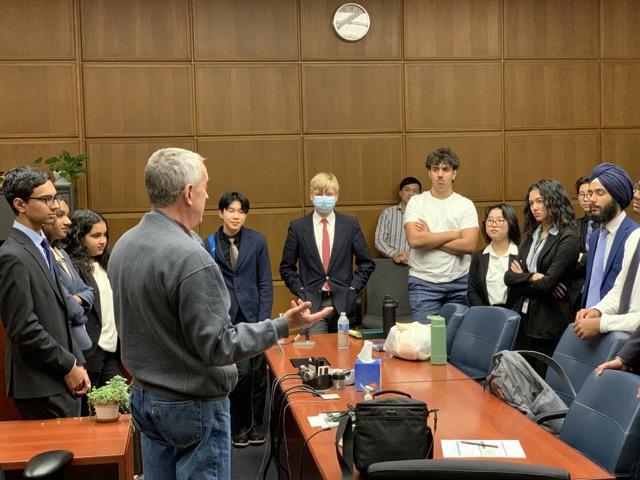Sustainable practices in place on campus, student involvement could drive further change
This story, originally posted Dec. 1, has been updated and reposted to clarify the courses that include instruction on environmental topics, adding content from High School Science Department Chair Kellie Whited.
Climate change is worsening, prompting increasing conversations and student involvement in sustainability. Country Day is already engaging in some sustainable practices and climate education, including the school garden and recycling, but increased student interest could drive new change.
“Often these kinds of things are driven by student interest and energy. Sort of the classic grassroots approach to change,” said Head of School Lee Thomsen. “Over the years we have had various levels of interest, things like student clubs which come in and out of existence.”
One of those clubs, the Environmentalists Club, was founded this year by junior Adam Akins to try to educate students about how to make decisions that benefit the environment.
“I’m trying to lead education in individual sustainability and conservation efforts,” Akins said.
Club projects may include building a hydroponic system to grow plants, petitioning the school to install solar panels and fixing issues with sustainability on campus.
One of the issues Akins is concerned about is the lunch program.
“Our lunch program creates an egregious amount of waste,” he said.
According to Thomsen, the school has tried during the pandemic to work with its lunch vendors to be sustainable. But with the COVID-19 pandemic, the lunch program has had to generate waste from individually packaged food.
Akins said the school can do better and reduce waste. He has been met with support from faculty when trying to create change.
“They have great resources,” Akins said. “I’ve never asked for something and been told no. They’ve just been very supportive.”
Akins has received assistance from the school to help combat waste.
“I’ve been offered space in the garden to use their composting barrels for composting food waste from lunch,” Akins said.
The school’s garden is a major sustainability practice at Country Day. The new Garden Supervisor Rory Tira hopes to make sure kids are comfortable being in nature.
“I like that the garden becomes an automatic part of being a student here. It’s not a special thing,” Tira said.
Students of all grade levels help grow organic food in the garden. The garden is fertilizer-free and produce goes to a food bank. The garden also serves as a classroom for younger students.
“One of the jobs out here is helping the younger grades come and learn gardening,” Tira said.
Thomsen sees opportunity for the school to be more sustainable.
“The school could be more aggressive in terms of education, particularly for younger kids,” Thomsen said. “I think as a school you have a responsibility to try and build the habits of mind in younger children that you’d like to send out into the world.”
Thomsen has been the Head of School for six years. He said that although the school lacks a cohesive plan with regard to sustainability, it has numerous sustainable practices with an overall goal of minimizing the school’s carbon footprint.
Thomsen said the school should be more mindful regarding the climate.
“We’re trying to put more attention to try and make the school more sustainable and be better stewards of the environment,” Thomsen said.
High School Science Department Chair Kellie Whited said AP Environmental Science was offered in the high school in the past but wasn’t held due to a lack of students signing up for the class.
“Earth science is rarely taught as a stand alone class at the high school level, and its topics are discussed as a part of other courses to increase the students ability to integrate scientific concepts. The entire fourth quarter of biology is devoted to ecology and this unit includes many Earth science topics with a particular emphasis on environmental science and climate change,” Whited said.
The ability to offer an AP Environmental Science class also can be impacted by issues like lack of space and available teachers, Whited said.
Although there is room for improvement, Thomsen said that the preservation of the environment and minimization of the school’s carbon footprint are guiding principles of Country Day.
“If you look at our mission statement, Country Day inspires intellectual discovery and engages a diverse community to think critically, live critically and act passionately,” Thomsen said. “The mission calls us to keep the preservation of the Earth as a part of what we do.”
According to Thomsen, sustainability will always be a goal, but often is in competition for resources.
The school hopes to address further climate-conscious changes through a strategic plan of action, Thomsen said.
Every five years the school completes a strategic plan of action. The current plan lacks a unified environmental directive, Thomsen said. Specific climate conscious measures and goals could be added to the next plan, which will be made in 2023. These additions would be spurred by student involvement.
Middle school science teacher Cade Grunst teaches the eighth-grade Earth science class, including a unit on climate change. He has seen a positive outlook on student-driven change.
“I have been communicating about climate change for the last decade, and have been thrilled to see student engagement skyrocketing in recent years,” Grunst said. “There is a cultural shift underway, and we still have some time to avoid the worst of the potential damage.”
— By Saheb Gulati
Originally published in the Oct. 26 edition of the Octagon.





The addition of Covid-19 Case Counter in the upper right coroner of the The Octagon emails is an appropriate and important piece of data that all of us need to be reminded daily. I would suggest that you also include in those statistics the number of people in the Sacramento area that are vaccinated and what this percentage is of the total area population.